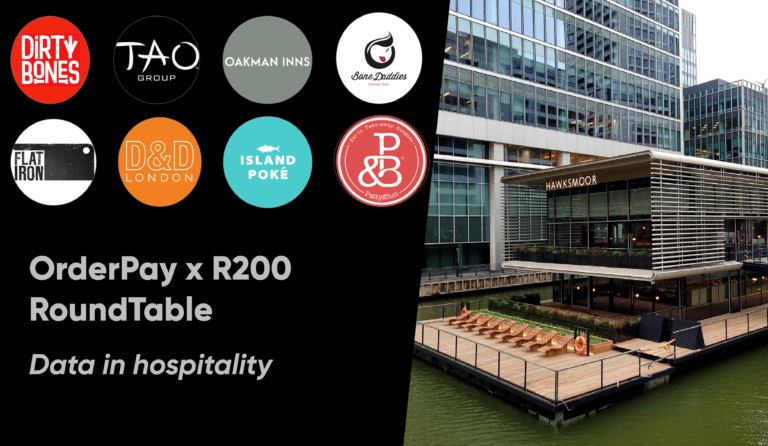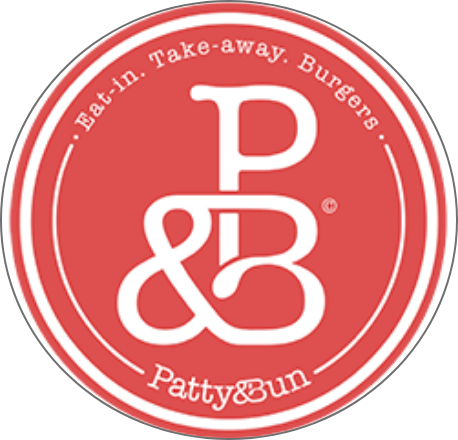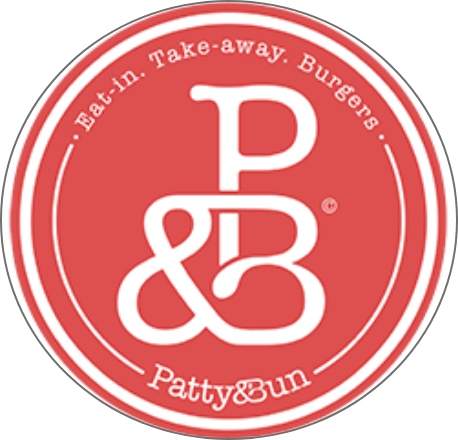Data, data, & more data.
We held a round table with R200 to discuss the hot topic of how the hospitality industry can make the most out of the data we collect.
Our panel of guests from the likes of D&D, Flat Iron & Patty & Bun shared their thoughts on how they collect data, the issues they face, & how the sector can do more. Here are some of the highlights from the discussion:

Data capture
All our panellists agreed that they capture a lot of data, sometimes so much that they don’t know what to do with it all. Whilst some venues have implemented a range of data capture tools, others felt they relied to heavily on front of house staff to input data.

Michael Farquar– Operations Director, D&D

“We use loyalty and CRM platforms and I’m looking at what can I do with this data. I want to use it for gamification, so customers come to all our shops to get a bonus. We want to make it fun not corporate. In terms of sign up, I realise that people are not willing to give email addresses, so we just ask two questions – do they want halal or vegan food? I’m interested to know how many halal customers we have, and whether they are from London or not. “
Rosie Swaffer – Head of Marketing, Patty & Bun

Resistance to data collection
In general our panellists spoke of 2 main trends when it comes to how comfortable guests are with handing over their data. Firstly, younger diners are far more likely to share their data. And secondly, giving guests a reason for giving up data is key – explaining that if they enter their birthday they will get a treat, for example.

“We’re a quick service restaurant, people come in and order a bowl and disappear. I think when it comes to people wanting to give out email addresses the younger demographic is happy to do that versus people who are a bit older. That presents a challenge and an opportunity. We do believe in data capture, but we recognise there are different demographics when trying to use it.”
Richard Zivkovic– Chief Operating Officer, Island Poke

Alix Pickard – Director of Marketing, TAO Group

Using the data
An overarching theme of our discussions was the feeling that we shouldn’t collect data for the sake of it, but only use it to enhance the customer experience. Striking a balance between providing a more personal service without seeming creepy is a struggle many hospitality venues are facing.

“A big part of why we collect the data that we do is to make our service really genuine with our GMs knowing our loyal customers. Our overarching marketing strategy is old school hospitality and being able to talk to our customers in a way that doesn’t feel like marketing. It has to be more nuanced. We do it to understand the guests but to also increase repeat visits. The aim is to make things a little more personal without being creepy.”
Tanith West – Head of Marketing, Bone Daddies Group

“For me, when it comes to customer data, if we gather info on the big wine spenders, I would like to talk to them to join a wine club and offer them an experience.”
Kelly Beard – Head of Marketing, Oakman Inns

Learning from retail
Richard & Steve from the OrderPay team both have a background in retail & are excited about the potential for the hospitality sector to take learnings from outside our industry. It’s why we place data at the heart of everything we do at OrderPay.

“Coming into hospitality the tool kits that we’ve used in grocery are clear. Promotional elements can be very effective. It’s about not being afraid to offer promotions because you don’t want to be seen as discounting. You can deliver them so that they are incremental. If I’ve had an engagement with a restaurant that I would normally eat at on a Thursday evening, for them to say come try our breakfast or have a lunch Monday to Thursday would be an incremental promotion. That is not scary.”
Richard Carter – CEO & Co-Founder, OrderPay

“With the likes of Sainsbury’s and Tesco there’s a lot of science that goes into where every single product is placed in the store; people are processing billions of numbers to decide that these cornflakes need to go next to this packet of muesli.
The same concepts can be used for menu management in the hospitality sector. By basing menus on what people order more of you can start to offer personalised menus that are easier to navigate. People are happy to give away data if they are getting an easier way to identify or discover dishes they are more likely to choose. There’s a value exchange. We know we give data to Amazon, but we get a very convenient shopping experience in return. It’s about taking those learnings to the hospitality sector.”
Steve Callery – Chief Data Officer, OrderPay

Find out more about OrderPay’s approach to data here.